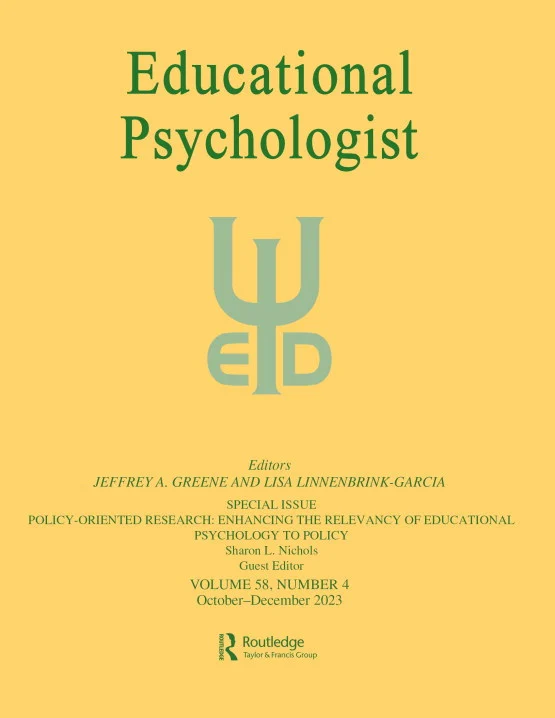从错误中学习的综合模式
IF 11.4
1区 心理学
Q1 EDUCATION & EDUCATIONAL RESEARCH
引用次数: 3
摘要
在大多数学习环境中,错误是不可避免的,但在适当的条件下,错误对学习是有益的。先前的研究表明,从错误中产生和学习可以促进知识的保留、更高层次的学习和自我调节。本研究提出了一个综合的理论模型来解释从自生错误中学习的两个主要阶段:产生错误(GE)阶段,该阶段通过语义相关的先验知识激活来促进学习;检测和纠正错误(DCE)阶段,该阶段在处理和比较自己的反应与提供的参考信息时通过自我解释来促进学习,以促进高质量的内部反馈。我们的模型根据先前的实证研究确定了支持每个阶段的一般设计原则。最后,我们确定了GE和DCE阶段的具体设计特征以及学生情绪、动机和个体差异在从错误中学习中的作用方面的研究差距和未来方向。本文章由计算机程序翻译,如有差异,请以英文原文为准。
An integrated model of learning from errors
Abstract Errors are inevitable in most learning contexts, but under the right conditions, they can be beneficial for learning. Prior research indicates that generating and learning from errors can promote retention of knowledge, higher-level learning, and self-regulation. The present review proposes an integrated theoretical model to explain two major phases of learning from self-generated errors: the Generating Errors (GE) phase, which contributes to learning via semantically related prior knowledge activation, and the Detecting and Correcting Errors (DCE) phase, which contributes to learning via self-explanation when processing and comparing one’s responses with provided reference information to promote high-quality internal feedback. Our model identifies general design principles that support each phase based on prior empirical research. We conclude by identifying research gaps and future directions regarding specific design features of the GE and DCE phases and the role of students’ emotion, motivation, and individual differences in learning from errors.
求助全文
通过发布文献求助,成功后即可免费获取论文全文。
去求助
来源期刊

Educational Psychologist
Multiple-
CiteScore
19.10
自引率
3.40%
发文量
16
期刊介绍:
The Educational Psychologist is a scholarly journal dedicated to exploring the psychology of learning and instruction. Articles in this journal encompass a diverse range of perspectives, from examining psychological mechanisms to exploring social and societal phenomena related to learning and instruction. The journal publishes theoretical and conceptual articles, as well as reviews and meta-analyses, that significantly contribute to theory or advance the methods used to explore educational psychology. Emphasizing innovation and advancing understanding, the journal does not publish articles solely reporting the methods and results of empirical studies; instead, all submissions, including reviews and meta-analyses, must offer clear implications for advancing theory. In addition to regular articles, the journal features special issues that delve into important themes in educational psychology, along with focal articles accompanied by peer commentary.
 求助内容:
求助内容: 应助结果提醒方式:
应助结果提醒方式:


